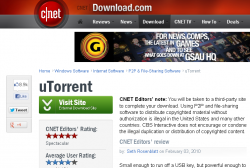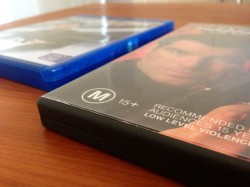Weekly News Roundup (10 February 2013)
It’s surely some kind of milestone for me this week, as I’ve obtained the Blu-ray copy of a movie that was the first one I purchased on DVD. Back in 1999, when DVD was first launched here in Australia, there wasn’t much choice in terms of movies you can buy on DVD. In fact, you were lucky if the store had any at all, and even luckier if you had more than a dozen titles to choose from. Tomorrow Never Dies was the movie that I chose to be my first ever on DVD (incidentally, Daniel Craig’s Casino Royale was the first Blu-ray that I owned). And you can tell this was an early release because it listed “chapter search” among the special features.
I didn’t buy my first standalone DVD player (for $USD 1,000, no less) until much later that year, and I only had a computer with a DVD-ROM drive that wasn’t powerful enough to play the DVD without skipping a few frames now and then. But it was all great fun, mixing and matching software decoder filters and players and squeezing just extra bit of performance just so you can reach the magic 25 frames per second playback rate. A few months after my first DVD purchase, I started this very website in the hope of sharing all that I’ve learnt about DVDs.
But back to Tomorrow Never Dies. The 4.03 GB worth of MPEG-2 and Dolby 5.1 goodness on DVD has now been replaced with 41.3 GB of MPEG-4 AVC deliciousness and a pounding DTS-HD Master Audio 5.1 soundtrack. And despite Bond fans and critics generally dismissing the movie as middling at best, Tomorrow Never Dies remains one of my favourite movies for the sole reason that it introduced me to the world of DVD, almost exactly 14 years ago.
Oh yes, the news …

It’s not often that I link to a Pirate Bay torrent here for you to download, but this one happens to be a must-watch, and it also happens to be legal. You see, this is a torrent to a documentary titled TPB AFK, about the infamous Pirate Bay trials and the people who were caught up in it all. You can also watch it on YouTube.
I haven’t seen the film except for snippets here and there, but for anyone interested in just what happens when one of these things actually go to trial, I’m sure it will be very interesting. I did see a clip regarding the personal attacks aimed at a professor who testified in favour of TPB co-founders. It’s a tired old tactic used by Big Money whenever someone questions their ideology, but despite the constant pressure, we are still seeing more and more research back up the idea that piracy isn’t as damaging as being hyped us, and that it might even have some positive things to contribute to the creative economy.
Nice gesture by supporters of TPB to send flowers to the home of the professor though …
——

uTorrent, one of the most popular BitTorrent clients, is still available on CNET’s Download.com – but for how long?
Maybe this is exactly what Alki David had in mind when he sued CNET’s Download.com for distributing LimeWire – to force CNET’s parent company, CBS Interactive, to come out and mount a legal defence of peer-to-peer downloading technology. This is exactly what happened this week when CBS/CNET file a motion in court defending their distribution of BitTorrent clients, citing all the reasons that readers of this news roundup should be familiar with.
In case you haven’t gotten your head around this ultimate case of irony, CNET’s parent company is also the same company that owns the major Hollywood studio, Paramount. This is probably as close as you can get to hear Hollywood come out and defend BitTorrent!
I would like to assume this is what David and co had in mind when they asked the court to grant them a preliminary injunction against CNET from distributing all BitTorrent clients, that this moment was what David, a former victim of Hollywood’s own crusade against tech innovation, had wanted from day one. I would like to think this, as otherwise, this is a very dangerous path that has been taken and the repercussions could be severe if the court somehow finds a distribution technology to be liable for what is being distributed using it.
Still, it was funny to see CBS come out and make all the right points about BitTorrent, of its legal uses in the field of research, entertainment and even political freedom. But to be fair to Hollywood and major rightsholders, they’ve never focused their efforts on going after BitTorrent, the technology, because I suspect it’s not the kind of thing that’s going to hold up in court. So there’s still hope that common sense will prevail in this case.
Not going after the technology, but going after those who use it illegally can also be fraught with problems too. With the U.S. slowing coming under their own six-strikes regime, it’s worth having a look at the same regimes in other countries to see just what may be in store. New Zealand has one of the toughest copyright laws and their own three-strikes system, but apparently, after 16 month and more than $USD 200,000 spent, all that the NZ version of the RIAA have to show for it is just over $USD 500 in fines received, from a single person.
And that single person even denies being a major downloader, having little or no knowledge of how BitTorrent actually works (including that an upload component is included with every download).
RIANZ, New Zealand’s version of the RIAA, has defended the $NZD 250,000 cost, 60% of which went to sending out some 6,000 notices to Internet subscribers, saying that people who receive notices are less likely to continue downloading, which they will probably feel is worth the $25 per notice fee that has been imposed on them by the government (for their part, they want the fee lowered to $2). RIANZ even claimed last year that piracy rates have halved in New Zealand since the introduction of the law in September 2011.
Similarly, the France three-strikes experience also led to claims of a dramatic reduction in pirated downloads. It has been reported that the French have already spent millions of euros on their “Hadopi” system with few successful prosecutions.
Of course, not a single person has presented any evidence that music sales have increased thanks graduated response efforts in New Zealand, France and elsewhere. And even the claim of a reduction in piracy can be questioned, since I’m sure many have simply employed encryption or migrated to other downloading methods to avoid detection.
And there we have it, another (fairly short) edition of the WNR done and dusted. See you next week.


